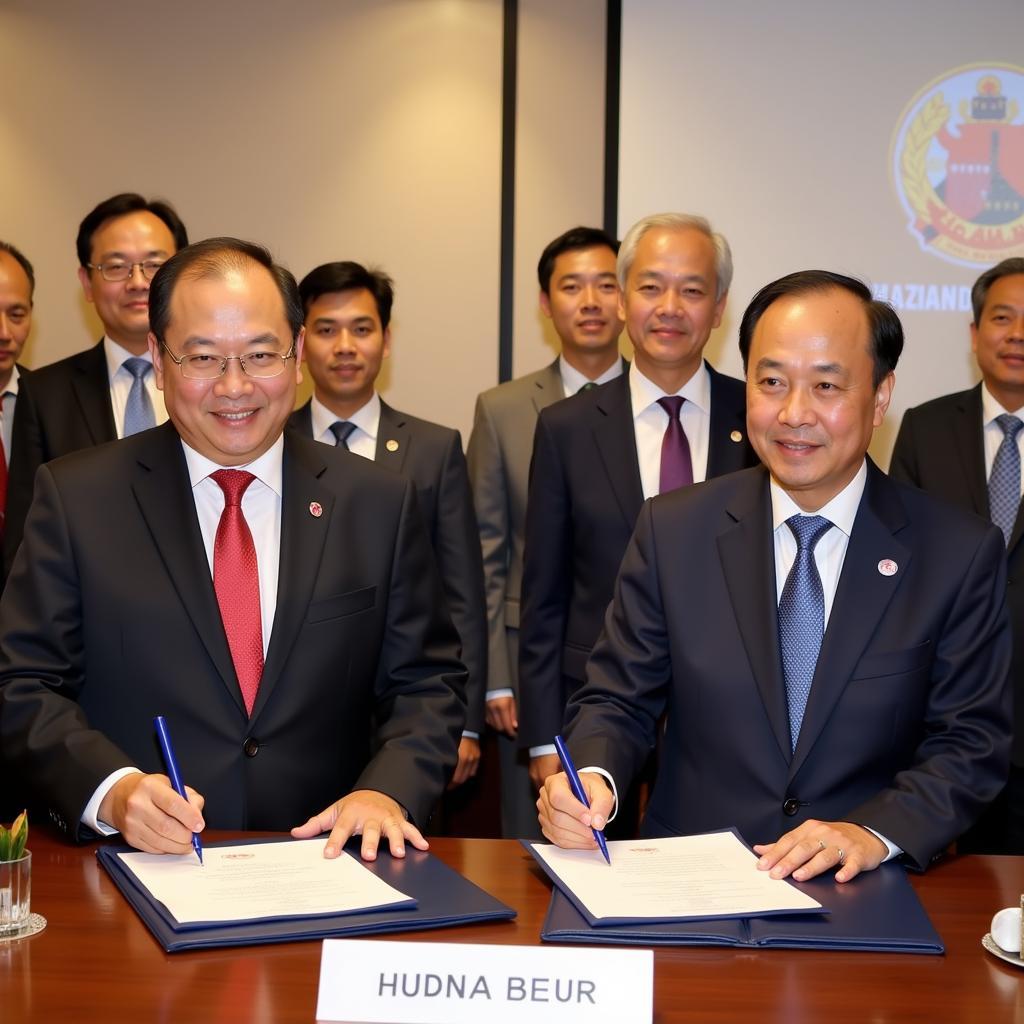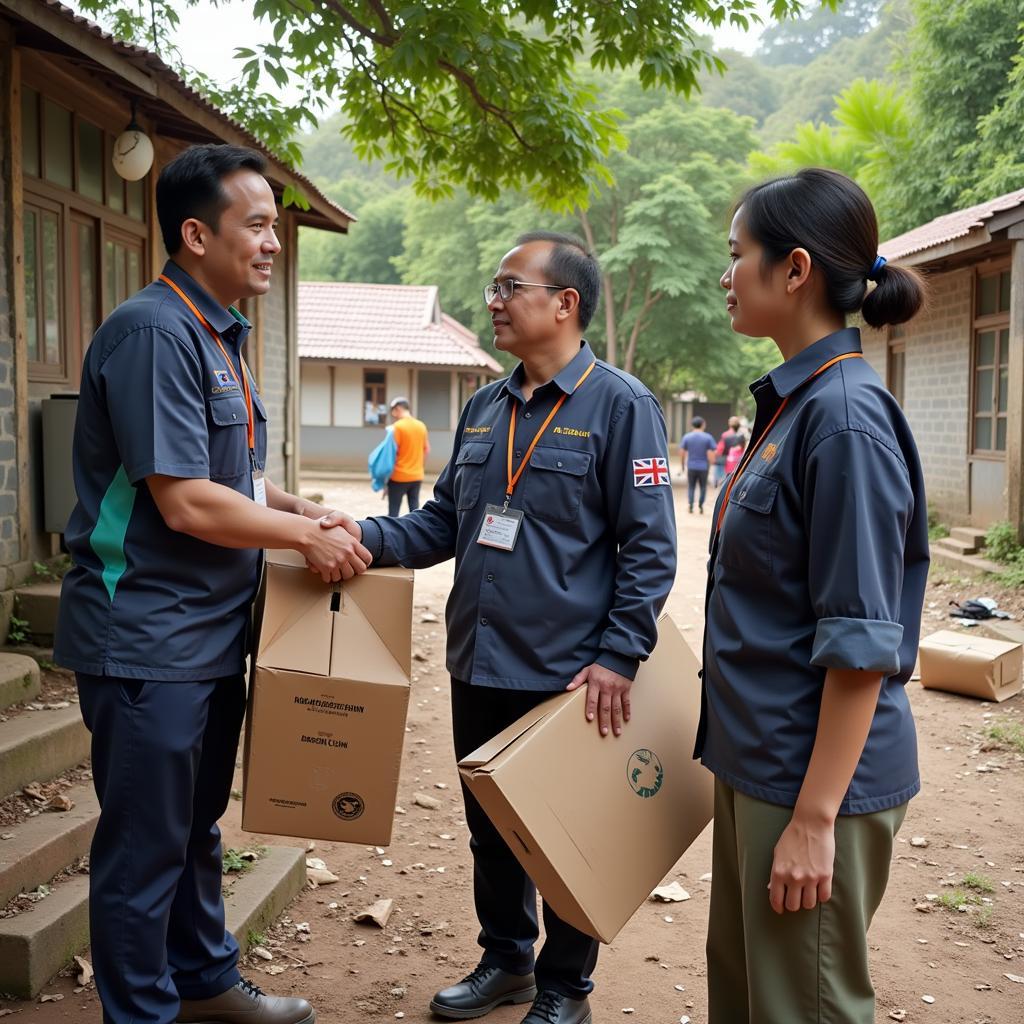Human security in ASEAN is a complex and evolving landscape, presenting both significant challenges and promising opportunities. This article will delve into the intricacies of Asean And Human Security Challenges And Opportunities, exploring the various dimensions of this critical issue.
ASEAN, as a regional bloc, faces a myriad of human security challenges, ranging from traditional threats like transnational crime and terrorism to non-traditional ones such as climate change, pandemics, and economic instability. These challenges impact the lives and well-being of millions across Southeast Asia, demanding a comprehensive and collaborative approach to address them effectively. However, amidst these challenges, ASEAN also possesses unique opportunities to enhance human security through regional cooperation, capacity building, and innovative solutions.
Navigating Human Security Threats in the ASEAN Region
Several key threats stand out in the context of ASEAN and human security challenges and opportunities. Transnational crime, including drug trafficking, human trafficking, and cybercrime, poses a serious threat to regional stability and the safety of individuals. The porous borders and diverse legal frameworks within ASEAN make it a prime target for criminal networks. Terrorism also remains a persistent concern, with extremist groups exploiting vulnerabilities to carry out attacks.
Furthermore, climate change impacts ASEAN significantly, with rising sea levels, extreme weather events, and resource scarcity threatening livelihoods and displacing populations. The COVID-19 pandemic also highlighted the region’s vulnerability to health crises and the need for stronger public health systems. Economic disparities within and between ASEAN member states can exacerbate these challenges, creating conditions that make individuals more susceptible to exploitation and insecurity.
 ASEAN Faces Diverse Human Security Challenges
ASEAN Faces Diverse Human Security Challenges
Opportunities for Enhanced Human Security Cooperation in ASEAN
Despite the numerous challenges, ASEAN has considerable potential to strengthen human security within its borders. The organization’s existing mechanisms, such as the ASEAN Political-Security Community (APSC), provide a framework for cooperation on security issues. Strengthening information sharing, joint training exercises, and cross-border law enforcement collaborations can effectively combat transnational crime and terrorism.
ASEAN can also leverage its collective bargaining power to address global challenges like climate change and pandemics. By advocating for stronger international agreements and coordinating regional responses, ASEAN can mitigate the impact of these threats on its citizens. Investing in education, healthcare, and social safety nets can build resilience at the individual and community levels, empowering people to cope with various forms of insecurity.
 ASEAN Cooperation: Key to Enhancing Human Security
ASEAN Cooperation: Key to Enhancing Human Security
How Does ASEAN Define Human Security?
ASEAN’s approach to human security is people-centric, focusing on protecting fundamental freedoms, promoting well-being, and ensuring that individuals can live in dignity. This includes addressing both traditional and non-traditional security threats. ASEAN recognizes the interconnectedness of these challenges and the need for a comprehensive approach that involves multiple stakeholders.
What Role Do NGOs Play in ASEAN Human Security?
Non-governmental organizations (NGOs) play a vital role in addressing human security challenges within ASEAN. They often work on the ground, providing essential services to vulnerable populations, advocating for policy changes, and raising awareness about human security issues. Their local expertise and community connections make them invaluable partners in promoting human security.
“Human security is not just about protecting people from harm, it’s about empowering them to live fulfilling lives,” says Dr. Anya Sharma, a leading expert on human security in Southeast Asia. “ASEAN’s people-centered approach is crucial for addressing the complex challenges facing the region.”
 ASEAN and NGOs Partnering for Human Security
ASEAN and NGOs Partnering for Human Security
“ASEAN must prioritize investing in its people to build a truly secure and resilient region,” adds Professor Kenji Tanaka, an expert on regional security. “This means strengthening education, healthcare, and social protection systems.”
Conclusion
ASEAN and human security challenges and opportunities are intricately linked. While the region faces significant threats, it also possesses the potential to become a leader in promoting human security. By strengthening regional cooperation, investing in human capital, and embracing innovative solutions, ASEAN can create a more secure and prosperous future for all its citizens.
FAQ
- What are the main human security challenges facing ASEAN?
- How can ASEAN enhance cooperation on human security?
- What is ASEAN’s definition of human security?
- What role do NGOs play in ASEAN human security?
- What are some examples of successful human security initiatives in ASEAN?
- How does climate change affect human security in ASEAN?
- What are the economic implications of human security challenges in ASEAN?
Common Scenarios and Questions
- Scenario: A natural disaster strikes an ASEAN member state. Question: How can ASEAN coordinate a regional response to provide effective disaster relief?
- Scenario: A rise in cybercrime threatens businesses and individuals in ASEAN. Question: How can ASEAN enhance cybersecurity cooperation to combat this threat?
- Scenario: Economic inequality leads to social unrest in an ASEAN member state. Question: How can ASEAN promote inclusive growth to address the root causes of insecurity?
Further Exploration
For more information on related topics, you can explore other articles on our website about ASEAN’s achievements.
Call to Action
Need assistance? Contact us 24/7: Phone: 0369020373, Email: aseanmediadirectory@gmail.com, or visit our address: Thon Ngoc Lien, Hiep Hoa, Bac Giang, Vietnam.

